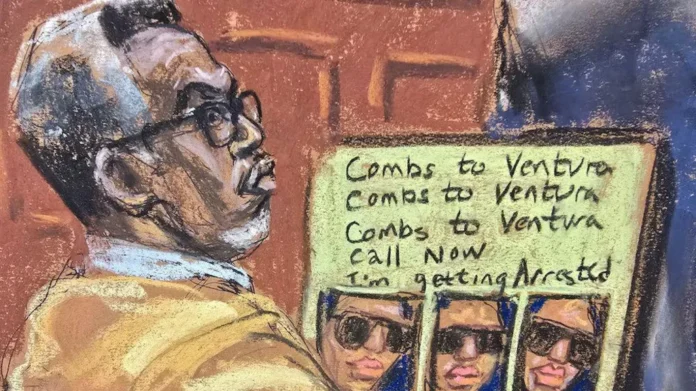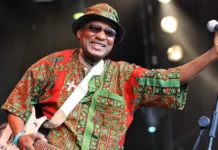The prosecution has formally rested its case in the high-profile federal trial of music mogul Sean “Diddy” Combs, who faces multiple charges including sex trafficking and racketeering. The weeks-long proceedings have laid bare explosive allegations and complex legal arguments, leaving jurors to weigh the evidence ahead of the defense’s brief rebuttal.
Combs, 55, is accused of leveraging his influence and business empire to orchestrate and conceal the sexual exploitation of women, in a case prosecutors say is comparable to criminal enterprises once run by mob bosses. While Combs has admitted to domestic violence in the past, he has pleaded not guilty to all charges in this trial.
Powerful Testimony, and Limitations
A central figure in the prosecution’s case was Casandra “Cassie” Ventura, a model and singer who had an on-and-off 11-year relationship with Combs. Ventura, now eight months pregnant, delivered tearful testimony recounting physical abuse and coerced sexual encounters, known as “freak-offs”, where she was allegedly forced to engage with male escorts as Combs watched and filmed.
Prosecutors bolstered her claims with surveillance footage of Combs assaulting Ventura in a hotel hallway, as well as photographs of injuries and testimony from a hotel security guard who said Combs offered him money to destroy the video.
Another witness, known only as “Jane,” echoed Ventura’s testimony, describing similarly coerced sexual encounters and manipulative behavior. Yet, jurors were also shown affectionate texts between the women and Combs, which the defense claims illustrate agency and consent, complicating the narrative.
Former federal prosecutor Jennifer Biedel acknowledged the potential challenge jurors may face in reconciling mixed messages. “The case might not be as clean as the jury might like it to be,” she said.
The prosecution’s position was further weakened when a third expected witness, another alleged victim, could no longer be contacted.
Racketeering and the RICO Hurdle
In addition to sex trafficking, Combs is charged with racketeering under the RICO Act—a statute historically used to target organized crime. Prosecutors allege he used his employees to run a “criminal enterprise,” arranging sexual encounters, delivering drugs, and covering up his actions.
Testimony from former assistants and insiders described how Combs’ inner circle helped facilitate abuse. Rapper Kid Cudi claimed Combs once set his Porsche ablaze in retaliation for dating Ventura, an incident prosecutors framed as part of a pattern of violent control.
Still, legal experts say proving racketeering is more difficult than demonstrating individual acts of abuse. “It’s a challenge to simplify the technical elements of racketeering for a jury,” Biedel noted.
The Defense Strategy
Combs’ legal team has signaled they will not call witnesses, and the rapper himself will not testify, a common strategy in high-profile trials to avoid cross-examination risks. Instead, his attorneys appear focused on dismantling the broader conspiracy charges rather than denying individual acts of misconduct.
“There’s a compelling set of facts, but the defense will likely argue they don’t satisfy the legal elements of sex trafficking and racketeering,” Biedel said.
Cross-examinations of prosecution witnesses already allowed Combs’s lawyers to introduce doubt, particularly around the degree of consent in the alleged “freak-offs.” In “Jane’s” case, the defense highlighted text messages suggesting a degree of agency in her actions.
What Comes Next
As the defense prepares its closing arguments, the jury faces a complex task: deciding whether Combs’s behavior, however troubling, amounts to criminal conspiracy and sex trafficking under federal law. A conviction on all charges could result in a life sentence.
Criminal defense attorney Mitchell Epner remarked, “Jurors tend to latch onto a story and filter facts through that lens. If they believe he’s a ‘bad guy,’ technicalities may not save him.”
The trial now enters its final phase, with both sides poised to make their final arguments before deliberations begin. The verdict could mark a pivotal moment in how American courts treat celebrity, power, and accountability.
Written By Rodney Mbua


















